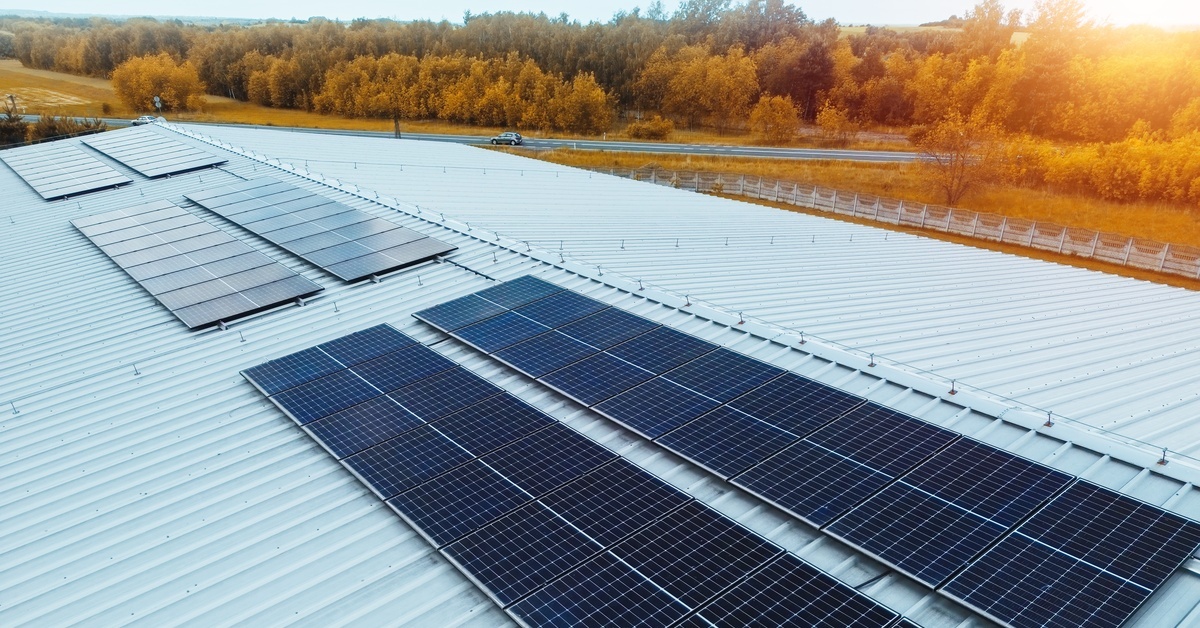Apr 1st 2025
What To Know About Tax Benefits for Solar Projects
Renewable solar projects continue reshaping how companies approach energy solutions, providing substantial benefits for businesses of all sizes while contributing to green initiatives. Many industries are switching to solar to reduce their monthly energy expenses, but tax benefits are also available for solar projects. Set realistic expectations by learning about the return on investment process and how these solar installations can improve your business’ budget.
Understanding Solar Tax Incentives
Solar tax benefits can offset the upfront costs of installation while increasing your long-term returns. These incentives exist to encourage businesses to invest in renewable energy solutions. At the federal level, these programs can make solar installations more attainable for organizations across the country.
The Federal Investment Tax Credit (ITC)
The ITC is one of the most valuable tax benefits for businesses investing in solar energy systems. It allows companies to claim a percentage of their solar installation costs as a credit on their federal income taxes. For example, if your solar project costs $100,000 and the credit rate is 30%, you can claim $30,000 in credits.
Businesses should note that the ITC is a benefit with a declining percentage over time. This means that your company may receive a smaller tax credit the longer you wait to claim it within the specified timeframe. Installing a solar project sooner secures the maximum financial benefit before the credit rate decreases.
Accelerated Depreciation With MACRS
Another significant tax incentive is the Modified Accelerated Cost Recovery System (MACRS). This enables businesses to recover their initial investment more quickly by allowing them to depreciate the cost of their solar equipment over a set period. Typically, the given amount is five years.
Depreciation often includes a bonus write-off option, which can further reduce taxable income in the first year of installation. In combination with the ITC, businesses can significantly improve a solar project's return on investment by signing up for these programs.
State-Level Solar Tax Benefits

State governments offer their own tax benefits for businesses installing solar, which vary widely depending on location. These advantages further incentivize businesses to switch to renewable energy solutions.
Sales Tax Exemptions
Several states offer exemptions from sales tax for purchasing solar energy equipment. For instance, if your state has a sales tax rate of 7% and exempts solar installations, your business will save thousands in immediate costs on a typical solar project.
Sales tax exemptions typically cover the necessary parts of your system, including batteries, inverters, and other components required to run a commercial solar system efficiently. This also includes any resources you plan to add after the initial installation. These exemptions help you boost your system’s longevity and save your company money in the process.
Property Tax Abatements
Adding business infrastructure like solar panels to a property typically increases its assessed value. However, property tax abatements exempt the added value solar installations to prevent higher property taxes. This allows businesses to focus solely on energy savings and financial benefits without worrying about increased property tax expenses eating into their returns.
Cash Flow Benefits From Solar Installations
Tax benefits also positively influence a business’s cash flow. This leads to greater financial flexibility and growth opportunities for businesses. By understanding the tax benefits for solar projects, you can strategically reinvest the savings into other business improvements, effectively multiplying the value of your solar investment.
Leveraging Solar for Increased Savings
Solar energy production minimizes your dependency on increasingly expensive grid electricity, immediately lowering your business’ energy bills. Financial savings from tax incentives compound this effect to make businesses more agile with their resources.
The money saved can go toward expanding business operations, hiring additional employees, or reinvesting in solar equipment upgrades. Many customers find these combined savings create enough capital to fund significant business improvements that would otherwise be out of reach.
Earning Returns on Solar Investments
Businesses may also qualify for additional income opportunities through net metering programs. These initiatives allow organizations to sell surplus energy generated by solar systems back to utility companies, creating an actual revenue stream from your solar investment. Whether your business consumes high or low amounts of energy, net metering helps maximize the financial performance of your system year-round.
Stabilizing Operating Costs
Solar installations fundamentally change your energy cost equation by generating electricity with virtually no recurring costs after installation. While traditional energy prices continue their unpredictable climb, your solar-generated power costs remain fixed. They can also provide steady energy flow during power outages or interruptions to prevent workplace downtime. This stability, combined with energy cost savings and tax benefits, allows businesses to stabilize their budgets for years to come.
Decoding the Application Process for Tax Credits
Businesses must follow the application requirements carefully to enjoy solar tax benefits. This improves the chances for eligibility for all incentives provided at both federal and state levels.
Federal ITC Filing Requirements
Applying for the ITC requires completing IRS Form 3468 and your annual tax returns. Keep your detailed receipts and documentation of your solar installation expenses to substantiate your claims. This includes any additional features you included within the installation to improve monitoring and security.
Work with a tax professional if you have any questions regarding the process. With their help, you’ll be able to maximize your benefits during tax season.
State and Local Paperwork
Each state has its own procedures for applying for solar tax exemptions or credits. Some areas even offer online portals to streamline the application process. Determining your state’s requirements through their website or consulting with an energy advisor makes the application process more manageable.
Ongoing Considerations With Solar Tax Benefits

Once your solar system is up and running, stay informed about changes to existing tax incentives and keep up with the system’s maintenance requirements. This will help you maximize your benefits throughout the system’s lifecycle and stay compliant with your local area’s safety guidelines.
Staying Updated on Policies
Programs like the ITC undergo revisions, including scheduled percentage declines or renewals. Businesses must monitor these updates closely to capitalize on any legislative changes. If you notice any signs of decline or changes in eligibility, partner with a solar consultant to comply with your local standards.
Expanding Solar Capabilities
Future enhancements, such as battery storage, can further boost a business’s cost savings and tax incentives. If you notice any signs of wear and tear, schedule maintenance to avoid costly repairs and replacements. Maintaining flexibility in your energy strategy allows your business to capitalize on evolving financial opportunities as technology and incentives continue to improve.
As part of your new solar installation, you’ll need to maintain the system for long-term benefits. To make your routine repairs easier, consider installing resources that improve the process, such as Get Solar Labels’ solar PV stickers.
These weather-resistant materials provide useful information regarding troubleshooting instructions and hazardous zones. To learn more, get in touch with our team today!

